As parents, we make all the difference in how our children see the world, and how they take care of it, too. There are lots of simple everyday things that we can do and teach our children by example to do that will help care for this beautiful world we live in. These simple changes are something the whole family can get involved in, and make a difference that really adds up.
I was hosted on a press trip to visit SeaWorld and DiscoveryCove to
learn about Rising Tide conservation efforts. All opinions are my own.
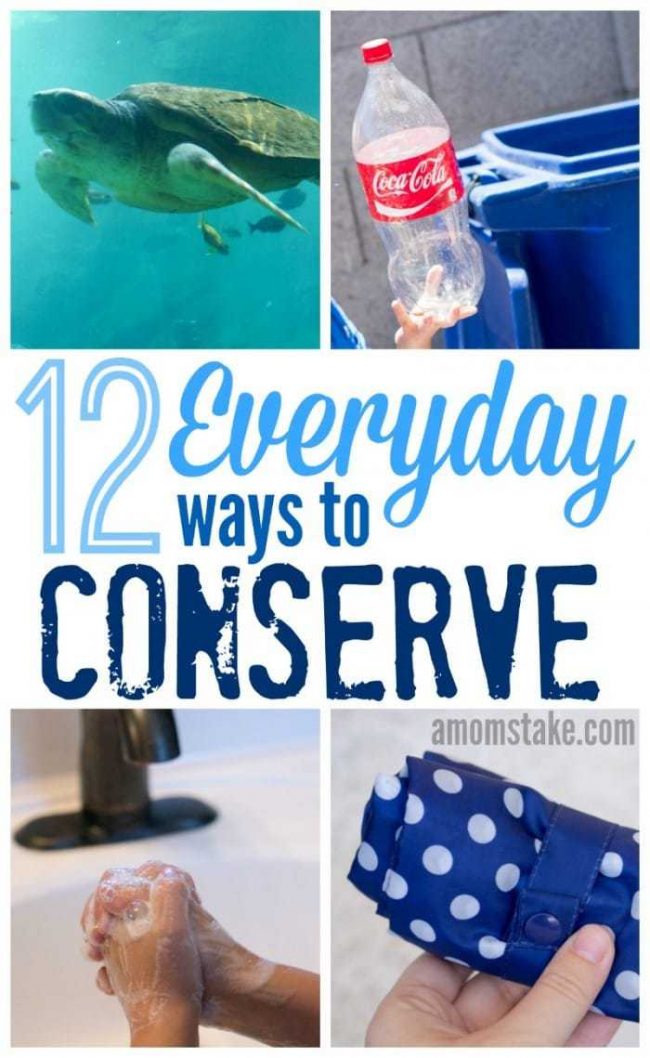
12 Everyday Ways to Help Conservation
1. Skip plastic – Whenever you can, opt to skip plastic. Plastic grocery bags are an easy swap for paper. But there are other easy swaps, too. Like skip the lid and straw while dining out will save trash that can be harmful to reefs and ocean life. You can also choose reusable water bottles over plastic toss-away water bottles.
2. Flip off light switches – Get in the habit of flipping off the light switch whenever you leave the room. Leave lights off when there’s enough sunlight in the room. This will double as saving you money on your electric bill, hooray!
3. Practice recycling – Sorting out your soda cans and bottles, plastics and paper, cardboard and other recyclables can be easy – and a fun way for kids to help. You can make it easy with two separate trash cans to help keep everything separate and as an easy reminder that recycling is important to your family.
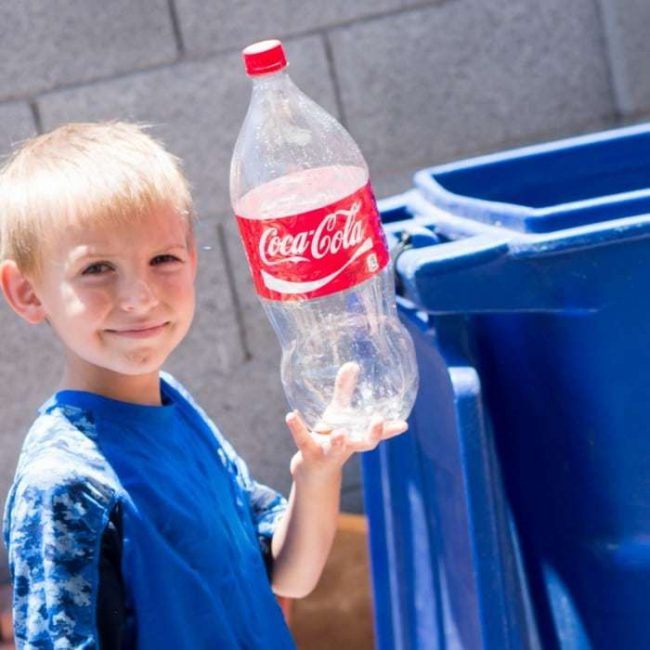
4. Use natural products – Your family can make really simple swaps in your cleaning products and home care products that can make a big difference to our water sources. All water eventually leads to the oceans and those delicate reefs we love, just like they say in Finding Nemo. Fertilizers are a big danger to our waterways. Sadly, there is a “dead zone” about the size of Texas in the Gulf of Mexico due to run off from the rivers and the chemicals that end up there.
5. Eat Sustainable Foods – You can even make simple swaps at the grocery store that can make a big difference. When you pick seafood that is sustabinably-sourced, you won’t be impacting the natural order of our oceans. Sustainably-sourced means that the seafood won’t have a negative impact on the food chain.
6. Choose aquaculture fish – You may not realize, but nearly all salt water aquarium fish are fetched right off of the reefs. They are farmed from their homes and it greatly impacts the reef as a whole. By looking for aquaculture fish, with over 100 species available, you can still have a beautiful home aquarium to enjoy, but with fish that are breed for this use. Better yet, if you’re just starting out with a home aquarium, start with a fresh water tank. They’re easier for beginners so you’ll have more success caring for the fish you select.
7. Save water – There are a lot of easy ways you can conserve water use. Set a timer and to take quicker showers. Save a tub full to bath several children before draining out the tub. Turn off the water between lathering your hands with soap and rinsing or while brushing your teeth. All those little ways to save water will add up quickly and save you money and water consumption!

8. Repurpose / Reuse – Not everything is immediate trash, if you have something you’re no longer using, think outside the box and come up with other ways to repurpose and use items in a new way. When your family truly no longer need the item, give it to someone in need or donate to goodwill rather than toss the items in the trash. You’ll be helping someone and also saving our environment by keeping items that still have a life left be reused rather than need to be remade in a factory.
9. Take care of your belongings – Make it a priority and teach your children to value and take care of your belongings. We live in a society where we’ve become a “throw away” generation. When something better or nicer comes along, we tend to toss whatever we already had to upgrade to something we perceive to be better. Like the saying goes, “If it ain’t broke, don’t fix it.” Take good care of the things you do have, and skip replacing items that still have a lot of good use left to them.
10. Carry reusable bags – The trend towards reusable, lightweight, easy to fold up and stash bags has had a big impact. These bags are good for SO many purposes. I always pack one in my purse. It’s perfect for pulling out at the library for your armful of books, at the grocery store, when you find trash along your walking route – whenever it might be needed. Perfect for an extra hand in a pinch and a much better option than plastic bags.
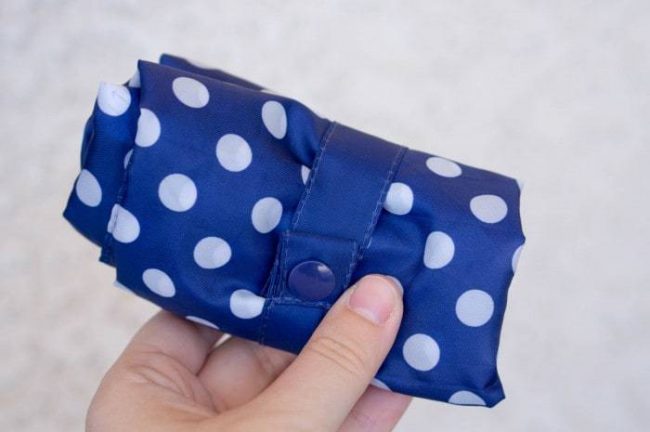
11. Visit local accredited zoos and aquariums – You might not think of this initially as a conservation effort, but local zoos and aquariums are very actively involved in conservation efforts. By supporting these institutions with your visit you’ll help ensure that important work continues. It’s also a wonderful way to help your children learn about the animals we share this world with and come to love and desire to protect them.
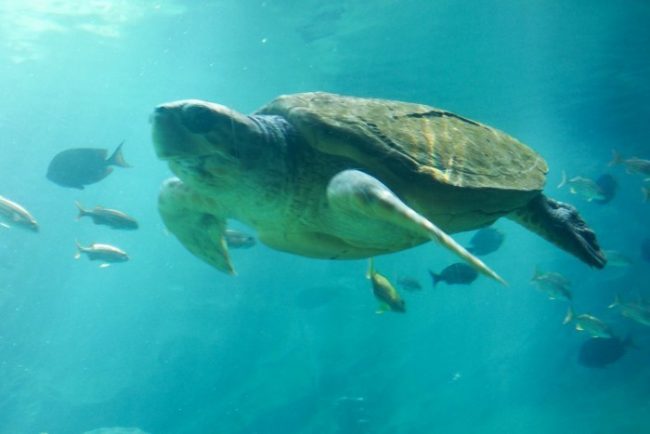
This amazing sea turtle lost over half her lower jaw. You might be able to tell from the picture, it looks like a major underbite, but in fact she used to have a jaw, but it was actually damage from fishing line. This sea turtle was rescued by SeaWorld and they’ve been able to take her in and care for her. Without her lower jaw, she cannot eat as she normally would in the wild and will remain at home in SeaWorld so they can help protect and provide for her.
12. Donate to foundations – Work together as a family to save up your spare change and donate it to a cause that matters to your family that will show your children that you care for our world. Rising Tide is a great foundation that can use donations to help protect tropical fish and coral reefs. Their program can help keep a beautiful reef for your children and your children’s children to enjoy for generations to come.
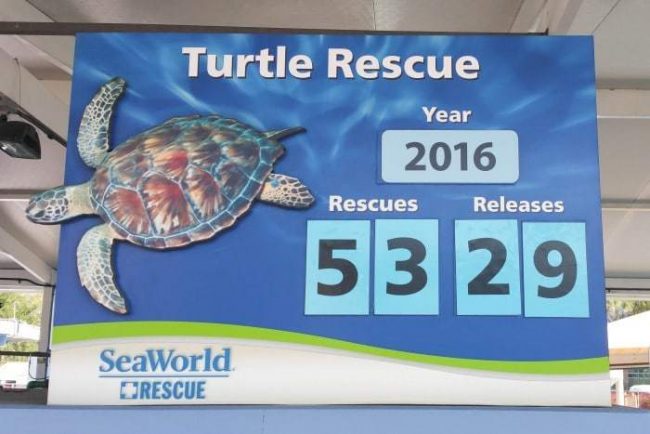
SeaWorld makes huge efforts each year to rescue and rehabilitate and release (whenever possible) marine animals. So far just in 2016 they have rescued 53 sea turtles and release 29!
SeaWorld has made a commitment to invest $50 million over the next five years to conservation, being the world’s leading marine animal rescue organization. The work they do to protect animals in the wild and rescue those that are in need of rehabilitation or a safe environment to live where they may otherwise not survive in the wild is so important. SeaWorld is also giving it’s voice and influence to advocate the end of commercial killing of whales, seals, and shark finning to protect these animals we love and care for.
What will your family do to make a difference in conservation?

janis
Thursday 14th of July 2016
We do several of these in my house. It is so important to conserve, especially water (cause California isn't doing to well on that front).
Kelly Hutchinson
Thursday 14th of July 2016
We practice several of these tips in our home. If I could only get my husband to turn off the water in the kitchen when we wants to talk to me instead of wash the dishes lol.
Dawn gibson-thigpen
Thursday 14th of July 2016
i love this post. keeping the planet healthy is so important for all of us.
Nicole Etolen
Thursday 14th of July 2016
We should really choose to recycle. We cna convert our waste into something better than throwing it.
Liz Mays
Thursday 14th of July 2016
I didn't know that about aquarium fish, but it's so good to know. I do use the bags though. I try to keep them in my trunk and have one in my purse all the time.